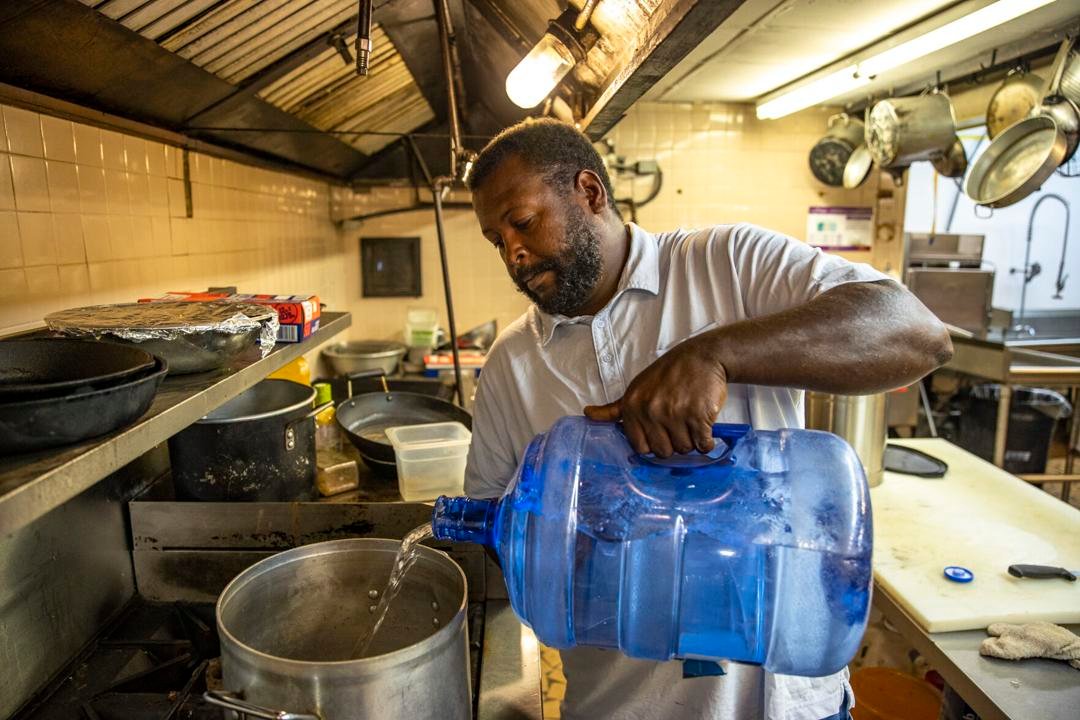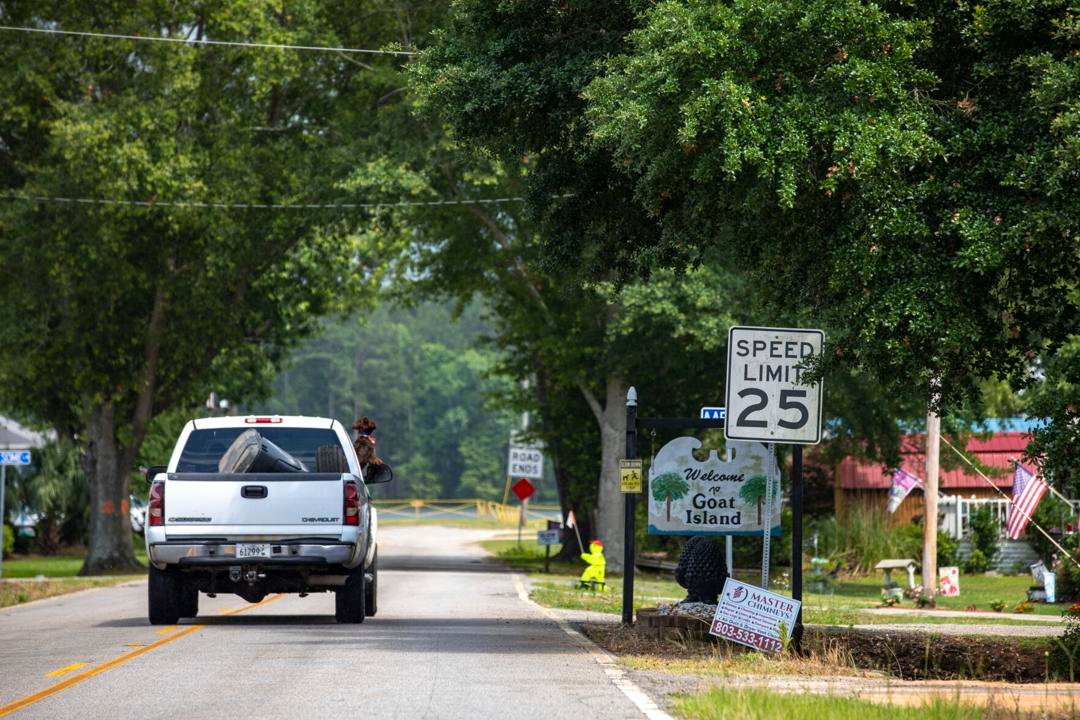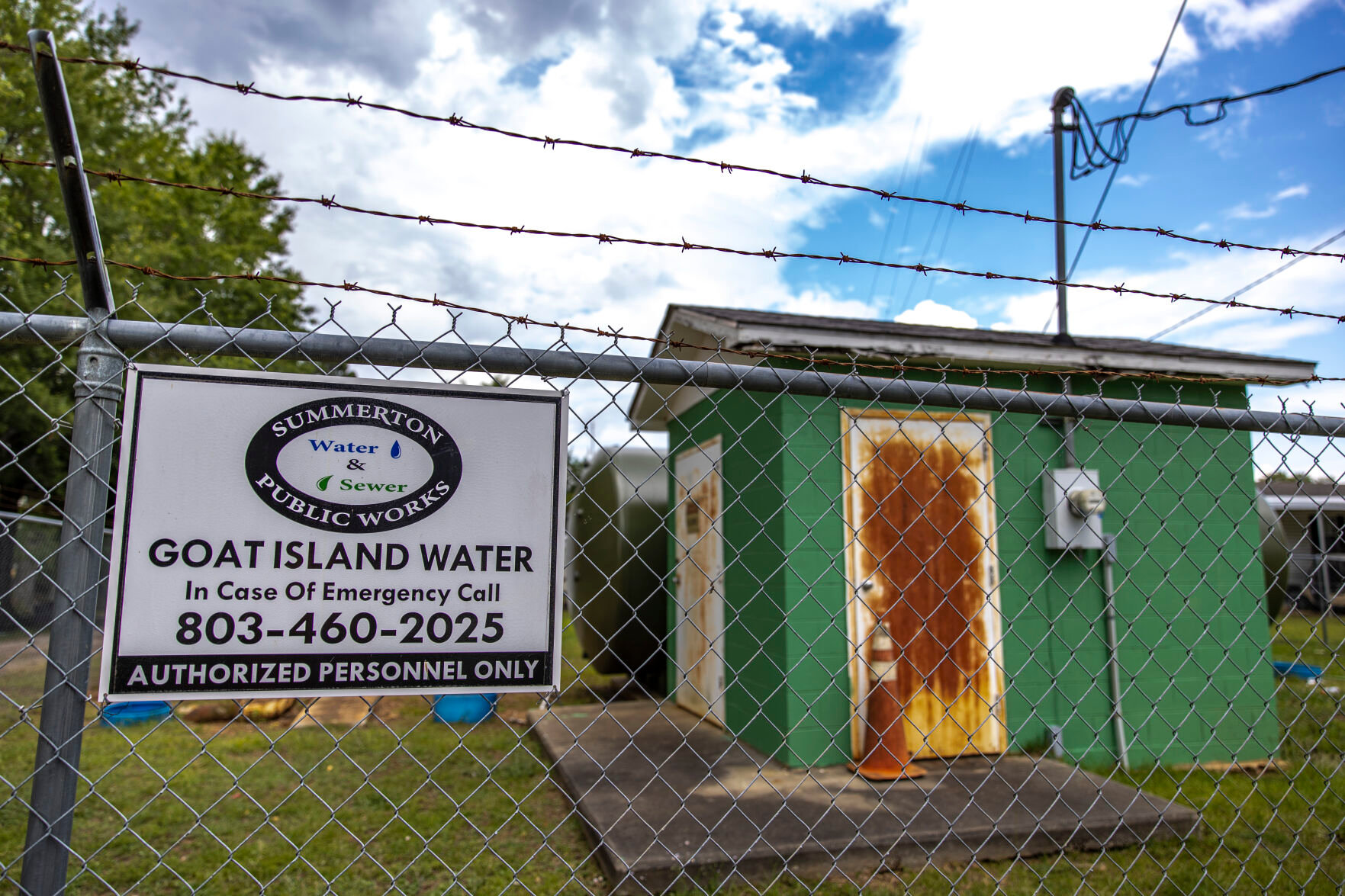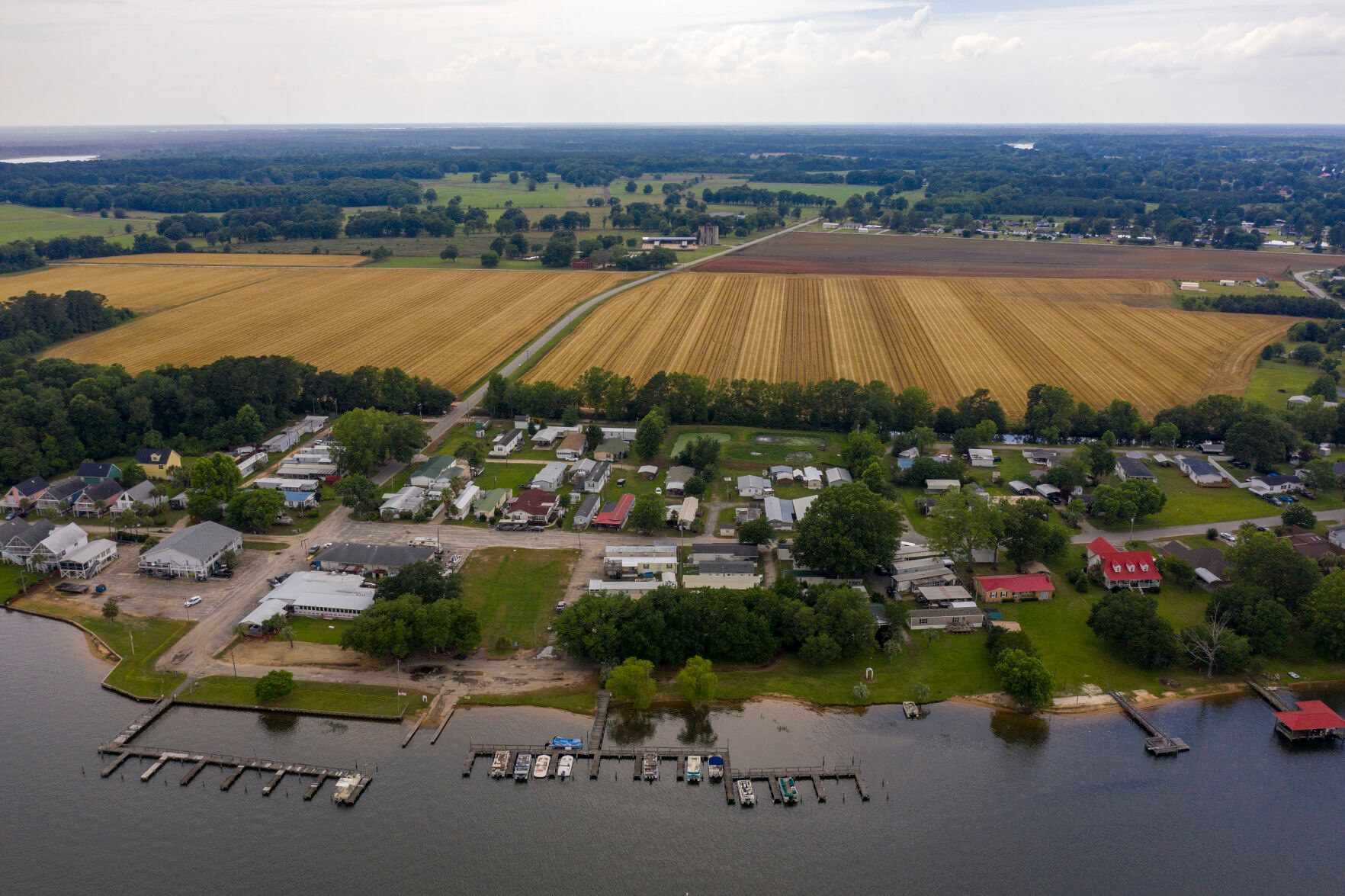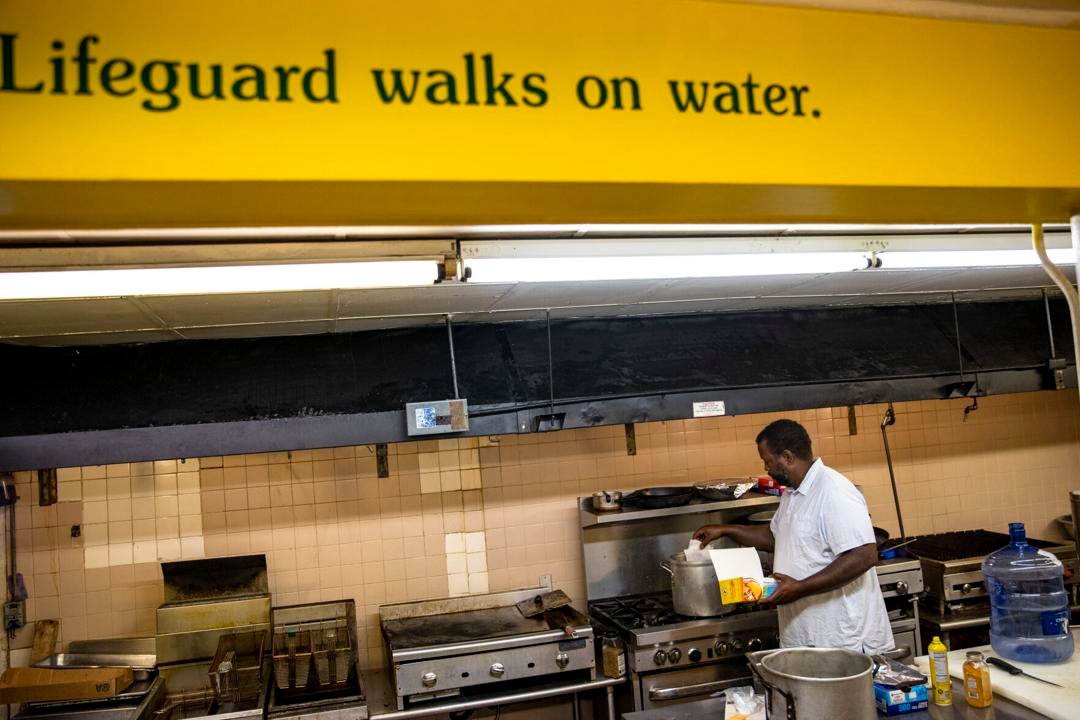As SC town struggles with water issues, Summerton residents wonder why councilman didn't warn them
shobbs@postandcourier.com
tmoore@postandcourier.com
kayla@theitem.com
EDITOR’S NOTE: This story was produced in collaboration with The Sumter Item, an Uncovered partner.
-----
SUMMERTON — When problems with this small town’s water systems were exposed earlier this year, residents went into a fury. Outside inspectors found years of neglect threatened the drinking water that flowed from taps. They were told of falsified records. And they determined that fixing the mess would cost Summerton dearly.
But what also came as a surprise was that one of the men involved in running Summerton’s water operations sits on Town Council.
That council member, Chalmers Stukes, failed to disclose his employment with the company Summerton hired to operate its water systems. And he did not recuse himself from votes that could benefit the company, an investigation by The Post and Courier and The Sumter Item found. Both omissions appear to violate state law.
Stukes apparently did not warn his colleagues that the systems were falling into disrepair. Instead, council members in this town roughly 50 miles southeast of Columbia said they only learned about the water problems in recent months, as its users complained about illnesses and cloudy drinks.
Stukes has not responded to questions from the newspapers about his actions.
Documents obtained by the newspapers reveal that an outside consultant found major problems with the town’s systems: unrepaired equipment, missing paperwork and insect poison scattered around drinking wells. A state health inspector said that systems no longer met state standards. In April, some residents were told to boil their water because it might be contaminated with bacteria. That recommendation was in place until June 25.
In response to the revelations, Summerton’s officials this spring ended the town’s contract with the councilman’s employer, Blackman Laboratory, which had a role in the town’s water systems for decades.
A spokeswoman for the state Department of Health and Environmental Control, which regulates drinking water, said the town’s water problems are the subject of an ongoing investigation. She declined to elaborate.
This story is part of Uncovered, a year-long initiative in which The Post and Courier has teamed up with community newspapers to expose government misconduct across South Carolina. In cases like Summerton's, reporters have found that the state’s weak ethics enforcement allows apparent violations and conflicts of interest to go unchecked.
Summerton was originally settled in the 1820s as a getaway for the area’s richest landowners, a “Summer Town” to avoid malaria, away from their plantations. Today, the town, which sits near Lake Marion and Interstate 95, has a poverty rate double that of South Carolina as a whole.
And now it faces a long list of repairs to restore its water systems, which serve more than 2,000 people who live in and around the town.
Overall, the official who took over the town's water operations this year said repairs to Summerton’s drinking and wastewater systems could cost $500,000. That would be more than the town collected in taxes last fiscal year.
Beyond that cost, Summerton also faces the threat of litigation from dozens of residents, particularly from one small unincorporated community, where neighbors riding golf carts swap stories about ailments they suspect were caused by their water.
“Somebody had to know what was going on,” said Councilman Terrance Tindal. “If the job was being done properly, it should have been recognized.”
On an island
Tammy Johndrow drove a golf cart one May afternoon along the dirt and paved roads on Goat Island, a narrow strip of development between farmland and a wide creek that feeds Lake Marion.
All around, she pointed out homes of neighbors who had complained about unexplained health issues.
There was the woman who said she had just returned from the hospital after months of stomach problems. There was the man who said his bacterial infections had worried his doctor so much that the physician had called DHEC. And there was her own teenage daughter who had been diagnosed twice this year with swimmer’s ear, Johndrow said, even though she had not been swimming.
Johndrow, like others in her community south of Summerton, suspects the water is to blame.
She has lived for 21 years on Goat Island, which contains mobile homes, condominiums and waterfront houses along Taw Caw Creek. She operates the area’s only restaurant, at the end of a road that stops at the edge of the creek, and owns a tackle shop next door. Both cater to people who come to Goat Island to fish and boat on Lake Marion or to have dinner.
“You have to want to go to Goat Island,” Johndrow, 54, said. “You can’t just drive by.”
Her water issues began in December when she saw sediment in her favorite beverage: sweet tea. Bar patrons also complained of residue in their drinks. Johndrow said she twice cleaned out her ice maker and changed filters in her restaurant to try to fix the problem.
But despite her efforts, she found sludge in the bottom of that ice maker after her restaurant was closed for a few days earlier this year. This time, Johndrow said she contacted DHEC.
Later, a DHEC inspector sampled Johndrow’s water and told her not to serve it to customers, she said. The inspector returned to Goat Island and tested from the community’s drinking water system. Those results showed microbes that suggest harmful bacteria could be present, according to a report from the inspector.
Summerton, on April 15, told users of the Goat Island system to boil their water before drinking it or cooking with it. The town said recent samples indicated that the system’s water had become contaminated.
Johndrow said she now spends hundreds of extra dollars a week to buy bottled water and canned soda for her restaurant. She is short on staff, and stocking up on those drinks is a hassle. The closest Walmart is about a 20 minute drive.
The water concerns follow her off the clock, too. She uses bottled water to brush her teeth. Johndrow and her daughter don’t take baths anymore. One of her dogs won’t drink tap water and she worries about the health of her mother, who lives a short walk away from the restaurant.
“We could all be having major health issues now and we don’t know it,” Johndrow said.
More than 50 people with complaints about Goat Island and Summerton’s other water systems have retained an attorney, Alex Craven, who is pushing for answers about the problems.
“Looking at all of these things, you just need some common sense to say this is pretty egregious,” Craven said. “My question is: How did it get this bad?”
Undisclosed
Chalmers Stukes joined Summerton Town Council in 2014. By then, he was already employed by Blackman Laboratory, which had been contracting with the town since at least 2000, according to state licensing records and the town’s former public works director.
Invoices obtained by The Post and Courier and The Sumter Item through the state Freedom of Information Act show that Blackman Laboratory has billed the town for more than $140,000 since Stukes took office. The real total is likely even higher, as the town did not produce two full years of records.
State law requires officials to disclose potential conflicts of interest, including any money they make from government contractors. It also requires them to list all their sources of income, from public and private entities. Stukes has never mentioned Blackman Laboratory in electronic filings with the State Ethics Commission, the newspapers found.
Omissions can go unnoticed by the ethics agency, which only has one auditor on staff to check the truthfulness of the thousands of documents it receives annually. Last fiscal year, that auditor reviewed less than 2 percent of over 22,000 filings, The Post and Courier previously reported.
Stukes did not recuse himself from council votes involving Summerton’s water operations, including several related to the town’s 2017 purchase of the Goat Island water and sewer systems.
When the council, in March 2020, discussed having Blackman Laboratory take over operations of all its water systems, Stukes was present and did not recuse himself, meeting minutes indicate. The company was granted the work by a unanimous vote, after the council met behind closed doors. Blackman Laboratory charged the town $1,700 a month for Goat Island operations.
In addition to his professional ties to the company, court records show that Stukes also married into the family of his employer.
Town records show that other Summerton council members did avoid votes when they felt they had conflicts of interest. In 2015, a councilman abstained from a vote on buying a $200 road sign celebrating a local softball team’s state championship because he was a coach. In 2016, a councilwoman recused herself from discussions about putting up a sign banning truck traffic because it would have gone up near her house.
Stukes hung up on a reporter and did not respond to an email outlining the newspapers’ findings. His lawyer, former U.S. Attorney for South Carolina Peter McCoy, declined to comment, saying he and another attorney needed to “completely look into all potential issues” before doing so.
It's unclear what Stukes' responsibilities were in regards to Summerton's water systems. The newspapers requested all agreements between the town and Blackman Laboratory, but the town only produced ones from 2020 and 2021. And DHEC records fail to identify which employees were specifically responsible for the sites.
But an agreement that Blackman Laboratory signed with Summerton this year outlines the company’s responsibilities in its last months doing work for the town: Company employees were supposed to check on the town’s water systems on a daily basis and test them for bacteria every month. They were also supposed to report mechanical malfunctions to the town.
Yet earlier this year, the town’s new water operator found that pumps were broken down and someone had jammed a piece of plastic in an alarm to make it turn off, according to his inspection report. Equipment meant to take out iron from Goat Island’s drinking water system was removed without permission. And a logbook that was supposed to document daily water checks had very few entries.
It is unclear what Stukes shared with his Town Council colleagues about the system’s issues. At a budget meeting in 2020, after Blackman Laboratory had taken over all of the town's water systems, Stukes told the council that he'd like to see money go toward maintaining Goat Island's sewer system, according to meeting minutes. But the minutes do not indicate that he raised concerns about the drinking water system at that meeting, and they make no mention of his ties to the company.
One member of council, Tindal, said he only learned that Stukes worked for Blackman Laboratory after Goat Island residents raised concerns about their water. Tindal previously served on council before Stukes took office and rejoined in August.
Mac Bagnal, Summerton’s mayor, defended Stukes, whom he called a friend. He said he believed that Stukes operated the Goat Island system for the past year or two.
“Part of it is he didn’t know what his role was,” Bagnal said, adding that Stukes wasn’t sure what he should report to town staff or his boss at Blackman Laboratory.
But the fact that Stukes was supposed to be checking on Goat Island’s drinking water system came as a surprise to Paula McNair earlier this year. McNair lives across the street from the system’s well and storage tank, and she is outside constantly, working on her neighbors’ lawns.
Taking a break from the heat as she sat on her riding lawnmower one recent afternoon, McNair said she had not seen Stukes checking on the water system. She had to search Stukes’ name online, she said, just to figure out what he looked like.
Lost trust
Two months on the job, Jay Kates knows he has his hands full returning Summerton’s water systems to a level that meets state standards.
Kates, whose company took over for Blackman Laboratory earlier this year, said he doesn’t know how the problems got so bad or what Blackman Laboratory and the town were each required to do as part of their arrangement. All the same, he inherited sewer and drinking water systems in disarray.
Weed killer and ant poison were scattered near wells. Buildings were damaged and one storage tank hadn’t been cleaned in 12 years. And town staff told a DHEC inspector that they knew some records about the water systems’ operation had been “altered or fabricated,” according to an agency memo. The memo does not specify who was responsible, and the inspector declined to speak with a reporter.
In a separate report, Kates wrote that as recently as March he found a logbook from the town’s wastewater plant that included an entry for a day that hadn’t happened yet.
“We’re just trying to get the programs back under control,” Kates said. “I’m trying to do things the right way.”
Bagnal, the town’s mayor, questioned why DHEC did not identify the long list of issues with the town’s water systems in its previous inspections. The agency documented them only after the town asked it to give the drinking water systems a closer look.
A DHEC spokeswoman declined to respond or answer additional questions, citing the ongoing investigation. The agency gave town officials until later this year to correct shortcomings in its water systems or face tens of thousands of dollars in fines.
In the meantime, Kates said he had not found any bacteria in the recent sampling he has done of Goat Island’s drinking water. He has also replaced the system’s decrepit water tank.
Kates estimated that fully restoring all of the town’s drinking water systems could cost $300,000. Another $200,000 might be needed to improve the town’s sewer facilities, he said. Kates said he did not know who was responsible for the neglect in the systems.
“You can tell by a lot of these things that they just didn’t happen overnight,” he said.
Blackman Laboratory’s role in the systems’ upkeep over the years is unclear because the town doesn’t appear to have written out its responsibilities until recently. In response to a records request, town officials only provided copies of contracts detailing the company’s work back to 2020. The invoices Blackman Laboratory submitted to the town do not specify in detail what work the company did. And even town officials seemed unclear as to where the company's responsibilities began and ended.
“Whether it was just a handshake and a smile or a formal contract written up, I don’t know. I never saw a contract,” said William Brailsford, who was the town’s public works director for two decades before he retired in 2019.
Don Johnson, who co-founded Blackman Laboratory in 1986, did not respond to a phone call requesting comment. After the newspapers sent him a list of findings, he emailed a statement, which said that the company had “performed its duties as required as the water and wastewater operator during the many years” it served Summerton. Johnson added that Blackman Laboratory stood by its record, which it performed according to DHEC regulations and “within the scope of work” with the town. He didn’t respond to follow up questions.
Bryan Rembert, Summerton’s mayor pro tem, defended the company.
“You get a level of service, and sometimes you get the minimum level and sometimes you get above the minimum level,” Rembert said. “I don’t think they were doing less than what they were required to do. Obviously, it would have been nicer if they’d given us more than what they needed to, but they didn’t.”
Seeking answers, dozens of people packed into Town Council’s small meeting room in May, filling chairs and standing nearby. At least one brought samples of cloudy water. Others who couldn't get in strained to hear in an adjacent hallway or gave up and left.
When it was time to discuss Goat Island’s water system, Johndrow spoke up first. She acknowledged that the water issues were a big task for the town to handle.
But first, she had a question: Where was Stukes, the council member who knew the Goat Island system best?
He wasn’t at the meeting, she was told. He was at a ballgame.
The Sumter Item's Kareem Wilson contributed reporting from Summerton.
More Articles to Read

